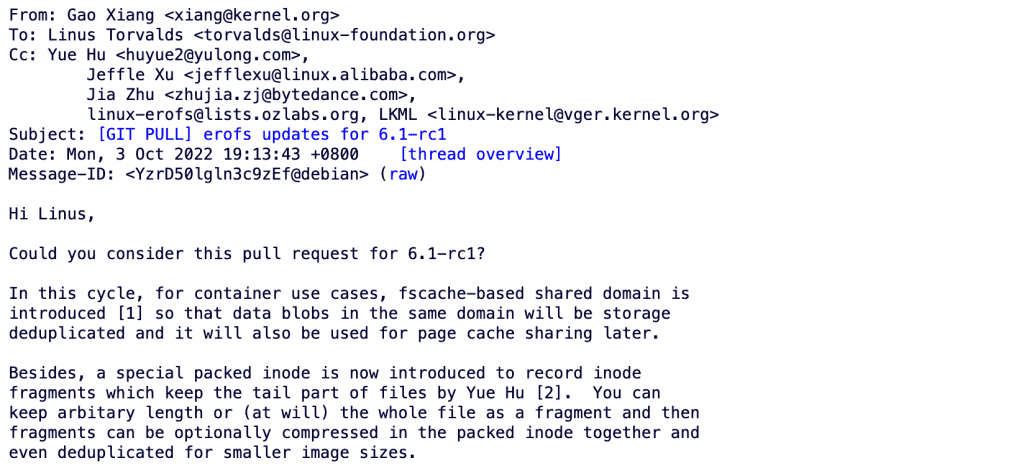EROFS, short for Enhanced Read-Only File System, is an enhanced read-only file system developed by Huawei. In mid-2018, EROFS was first introduced to the staging area of Linux kernel version 4.14, and after a year of continuous development, the EROFS file system driver was merged into the mainline in Linux kernel version 5.4.
Unlike other read-only file systems, EROFS is designed to build a new file management system that improves disk performance and speed while saving disk space to reduce unnecessary usage. According to Huawei, the random read speed of the EROFS file system can be increased by 20% on average, and even up to 200%, which greatly improves system efficiency compared with traditional EXT4.
As a read-only file system originally prepared for Android devices, the technology has expanded its scope. Recently, ByteDance engineers provided a code update for EROFS. This update brings FSCache-based shared domain support, in order to be able to share data blobs between EROFS file system mirrors (the same blob is stored in multiple EROFS file systems). shared).

For EROFS and Linux 6.1, this FSCache-based shared domain support was added primarily for container use. With this FSCache-based shared domain support, data blocks in the same domain can now be stored deduplicated, and will also be used in the future for page cache sharing (shared across multiple EROFS inodes).
In addition, this code update supports recording fragments in a special packed inode, as well as support for partially referenced pclusters for globally compressed deduplication. The developers said on the mailing list that they hope that Linus will merge this PR in 6.1-rc1.
#Huawei #EROFS #FSCacheBased #Shared #Domain #Support #Linux
